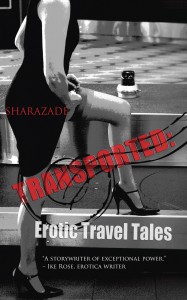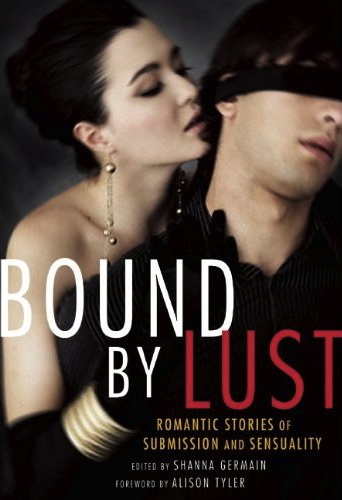I judge books by their covers. In fact, I buy books by their covers. Recently, at the public library’s used book sale, I picked up a book called Flying to Amy-Ran Fastness. I loved the title, because it sounded odd, and then the book was old. Not falling-apart-old, but intriguing-old. Before-my-childhood-old. I thumbed through it a bit. Nice serif font. Aged cream pages. Characters with names like “Jinks” and “Buddy” and “Zargo” and “Yncicea” (no, that’s not a typo). And “Bob.”
Time to look for a blurb. Ah, here it is, just after the copyright page (E.J. Craine. New York: The World Syndicate Publishing Company, 1930):
This fourth book of the Flying Buddies is “chock full” of excitement from beginning to end. The buddies are threatened with death by the appearance of a poisonous snake in their plane; they visit a marvelous underground palace and they witness a man-made volcano eruption which saves their lives.
I forgave the editor for letting someone write “which” where “that” was wanted, and I bought the book. Perfect for bathtub reading, I figured. (Of course I read serious literature too. In more than one language, even. But sometimes I just like the fun stuff!)
That’s how I like to buy books—by picking them up. A title attracts me, or a binding, or a cover picture. I might thumb through a bit, check out the look of the pages, feel the weight of the thing in my hand. Reading for me has always been a tactile experience, not just a visual one. Other senses come into play as well: Some like that “new car” smell; I like that “old book” smell.
In the same way, I like to choose movies by wandering through the shelves, idly looking over the titles. I must be one of the last people in my circle of acquaintances to not have a Netflix account. It does attract me—the variety, the convenience. Yes, I know. But not the browsing, not the physical browsing through shelves, picking things up, turning them over in my hand.
Is it any wonder I have a story in my collection called Just Browsing, which takes place in a used bookstore?
When Transported was published, it came out simultaneously as an e-book, a Kindle book, and a print book. For the first time, then, I thought more seriously about e-books and the Kindle.
My initial reaction was that they must not be quite as satisfying. Yes, the content is there—but what is there to hold? I can see the convenience, certainly. I can understand why some people might not wish to have copies of erotica in hard copy sitting on shelves in their homes, where perhaps young children are learning to read. And so on. But… what about the covers? the pages? the weight of the book in your hands?
It took a friend (an enthusiastic reader of print books too) putting a Kindle in my hands. Now there actually is some weight there, and the “pages”… well, they do look like pages. It’s not the same as a physical book, no. But it’s very pleasant! As he went on at great length about how easy it was for him to add new titles and to organize his books, I couldn’t help thinking about my physical books. The ones on my jammed shelves. The ones on storage shelves in the basement. The ones stacked up in the downstairs closet that holds the winter coats. The stacks at my feet at my work desk. There’s a downside to the physical heft of books too!
I thought of the times I’ve traveled, taking a few slim paperbacks with me so as to keep my luggage light—of course, they’re gone in days, and then what is there to read? With e-books or a Kindle, your next book or your next ten would just be there for you.
And then I began to feel, well… disloyal. If I liked a Kindle, would I get one? If I got one, did that mean turning my back on my hardcopy books? But they’re my friends! I’ve lived on four continents, but I’m still carting around books I’ve had since childhood.
Television didn’t kill radio (although it certainly affected it). The VCR didn’t kill movie theaters (although it certainly affected them). But… multiplex cinemas did contribute to the demise of those grand old theaters. Large chain bookstores and online retailers did push out many small independent bookstores. I don’t feel any particular nostalgia for landline phones, but books? Hardback books, and paperback books, what I still think of as “real” books? Even for the convenience (and perhaps environmental advantages) of a Kindle, I wouldn’t want them to disappear.
However, if I easily see situations where I would want one format and others where I would want another—surely other people do too. Really, the biggest threat to books in any format would be not enough readers. If people have the passion to read, they will seek out books, and probably in more than one way—they’ll buy them new, they’ll lend them to friends, they’ll go to the library, they’ll download them to their laptops and Kindles and cell phones.
OK, I’m going to confess now that Flying to Amy-Ran Fastness was actually pretty awful. The plot was silly, the book was poorly edited, with typos and mistakes all over the place, and the dialogue just made me wince. But you know, in a weird way, I still enjoyed reading it. It made me laugh, and now that I’m done, I will donate it to a used bookstore. Might pick up a few more things for myself while I’m there, even as I contemplate putting a Kindle on my birthday wish list. And I will keep encouraging everyone I know to keep on reading.






